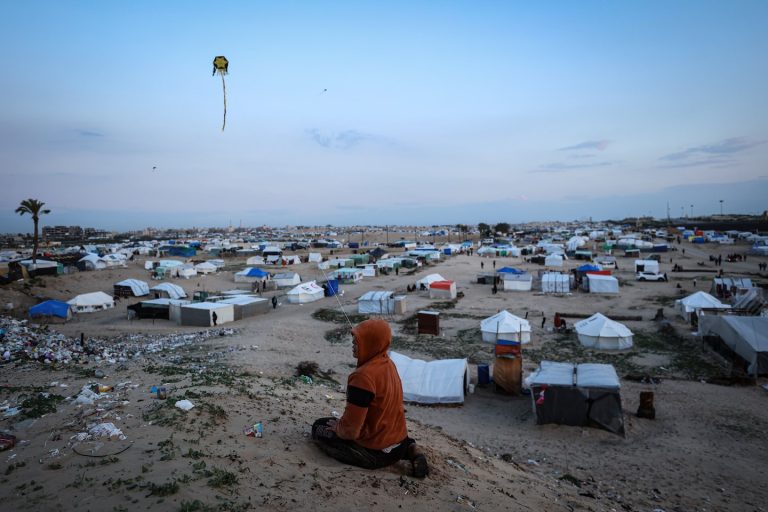South Africa is filing a lawsuit against Israel before the International Court of Justice, accusing it of committing genocide in Gaza and failing to prevent it, accusations that Israel denies. A ruling on the issue of genocide could take years.
The United Nations Office for the Coordination of Humanitarian Affairs (OCHA) said in its latest update that the situation in Rafah has become increasingly dire, with people becoming “desperate, hungry and terrified” ahead of the expected attack. The Office for the Coordination of Humanitarian Affairs said that the number of aid trucks allowed to enter the Gaza Strip decreased over the past week, with only 20 trucks entering on Thursday, which is a small number of trucks. A sharp drop from an average of 133 per day from February 2-8.
The United States and other countries – including Israel's most important allies – have publicly opposed the military campaign in Rafah, although Israeli Prime Minister Benjamin Netanyahu remains adamant.
President Biden told Netanyahu last week that the offensive should not continue without a “credible and implementable plan” to protect civilians in Rafah. Biden said on Friday that he had pressed the Israeli leader in recent days to accept a temporary ceasefire in Gaza to allow the release of the remaining hostages.
Here's what else you should know
- The multi-day Israeli raid on Nasser Hospital in Khan Yunis continued on Friday. The complex was left without electricity or water for several hours. The Gaza Ministry of Health said that five patients in intensive care died due to lack of oxygen as breathing machines stopped. The Israeli army said in a statement that the raid was aimed at recovering the bodies of the hostages. She later said that weapons had been found. The World Health Organization described the operation as “deeply worrying.”
- A UN aid worker is said to have been shown on video removing the body of an Israeli man after he was shot at Kibbutz Beri on October 7. According to a Post analysis of information released by the Israeli authorities.
- Israel expanded its allegations against United Nations Relief and Works Agency for Refugees, Stressing that there are “important indicators” indicating the involvement of more than 30 UNRWA workers on October 7. Jonathan Fowler, an UNRWA spokesman, said Israel did not detect this attack in advance, “implying that all participants… illicitly participated in ways that UNRWA also would have done.” Unable to detect.”
- Egyptian and Israeli officials denied speculation that Palestinian refugees would be expelled from Rafah to Egypt. After satellite images obtained by The Washington Post showed Egypt clearing and building a wall around a plot of land along its border with Gaza. The Israeli Defense Minister said, “The State of Israel has no intention of evacuating Palestinian civilians to Egypt.”
- Two people were killed and four others were injured in a shooting at a bus station in central Israel Friday. The shooter was killed by an armed civilian during the attack. The motive was not announced, but Israeli politicians described the violence as a “terrorist attack.”
- At least 28,775 people have been killed and 68,552 others injured in Gaza since the war began. According to the Ministry of Health in Gaza. Israel estimates that about 1,200 people were killed in the Hamas attack on October 7, and says that at least 235 soldiers have been killed since the start of its assault on Gaza.

